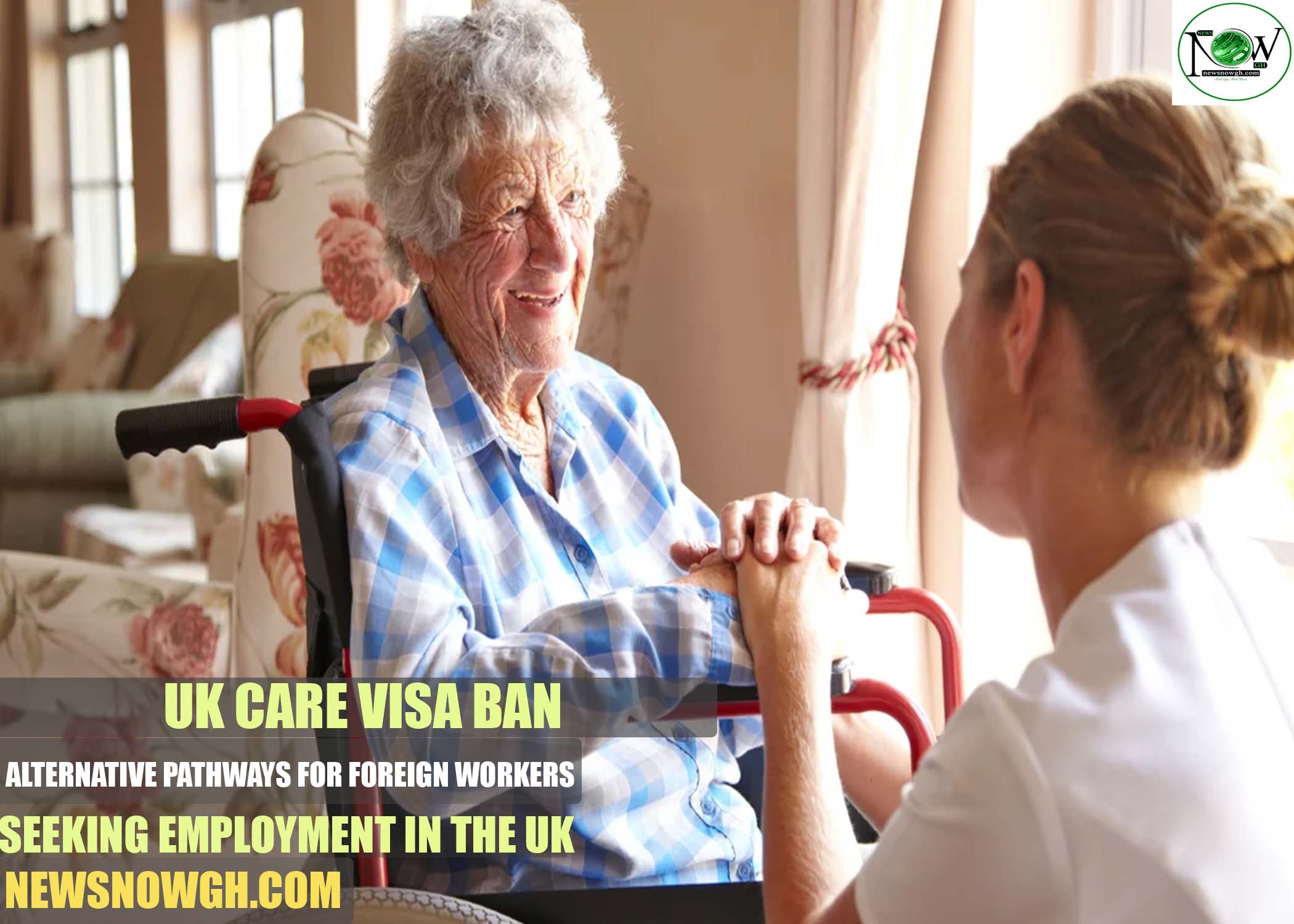UK Care Visa Ban: Alternative Pathways for Foreign Workers Seeking Employment in the UK
In 2025, the UK will stop accepting new overseas care worker visa applications. However, current workers can remain until 2028. This article highlights what this means for foreign workers and outlines alternative visa pathways.
The UK government has announced a significant change in its immigration policy. The care worker visa route will no longer accept new applicants from outside the UK. This decision aims to reduce immigration and strengthen the domestic workforce in the social care sector.
Understanding the Health and Care Worker Visa
The Health and Care Worker visa supports qualified professionals working in the NHS or social care. While this route remains available, recent updates affect general care workers.
Key Updates:
- Eligibility Changes: Starting April 9, 2025, new overseas applicants for general care worker roles will generally not qualify. Employers must focus on hiring domestic workers.
- Required Documentation: Applicants need a confirmed job offer and a Certificate of Sponsorship from an approved UK employer.
- Eligible Roles: This visa still applies to doctors, nurses, and allied health professionals.
- Benefits: The visa offers reduced fees, fast processing, an exemption from the Immigration Health Surcharge (IHS), and a pathway to permanent residency.
Implications of the Care Worker Visa Ban
- No New Applications: From 2025, new applications for the care worker visa from abroad will be halted.
- Transition Period Until 2028: Existing workers can continue their employment and extend their visas until 2028. During this time, they may also switch to different visa types.
- Policy Review: The government may adjust the visa policy based on the progress of domestic workforce development.
Why Is the Care Worker Visa Ending?
Home Secretary Yvette Cooper stated that this decision reflects a “fundamental shift” in immigration policy. The goals are to:
- Reduce overall immigration numbers.
- Limit reliance on migrant workers in social care.
- Promote the recruitment and training of local care professionals.
What This Means for Aspiring Migrant Workers
For those looking to work in the UK’s healthcare sector, these changes may limit direct access to care jobs through the Skilled Worker route. However, various alternative visa options remain available, especially for qualified professionals.
Alternative Visa Options for Care Workers
Here are some alternative pathways that migrant care workers can consider:
- Health and Care Worker Visa (for Qualified Roles Only)
- Skilled Worker Visa (Non-Care Roles)
- Student Visa (Pathway to Work)
- Temporary Work Visas
Guidance for Existing Care Workers in the UK
If you are already in the UK:
- Extend Your Current Visa before it expires.
- Switch to an Eligible Visa Route if your qualifications allow.
- Seek Advice from a Registered Immigration Adviser to explore your options.
The transition period until 2028 allows existing care workers time to adjust and plan for their futures.
Conclusion
The end of the care worker visa for new applicants represents a major shift in UK immigration policy. While it restricts opportunities for foreign care workers, those already in the UK or possessing healthcare qualifications still have viable options.
Staying informed and exploring alternative visa routes is crucial for adapting to these changes. Upskilling may also help in transitioning to higher-demand roles.
Follow NewsNowGh to stay updated on the latest information regarding work permits, visas, and visa-sponsored employment.


